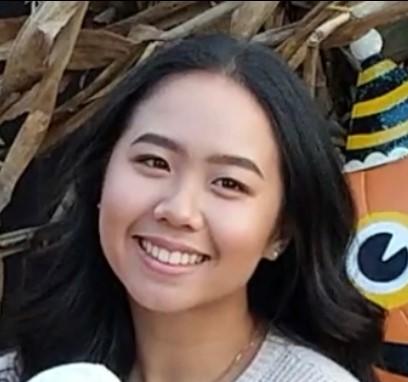This spring, George Mason University senior Elizabeth Cheang landed an internship that provided her with a unique opportunity to research COVID-19 cases and use public data sets to discover virus hot spots in the Washington, D.C., metropolitan area.
The health informatics major started in January as an intern with Lluvia Health, a start-up company that focuses on the accessibility and transparency of health care. She worked remotely on a weekly basis and plans to complete her internship on April 27.
“Throughout her internship, Elizabeth was very much a self-reliant intern who was intrigued with learning everything about start-up companies,” said Katherine Westpheling, adjunct faculty and course instructor for HAP 498 in the Department of Health Administration and Policy in the College of Health and Human Services. “She joined a small start-up team of engineers and learned quickly how to be integrated into that culture.”
“For the main project for my internship, I had collected COVID-19 cases by ZIP code specifically within the DMV area,” said Cheang. She used that data to find relationships within the certain sample populations. The result of this project was an interactive map that would show which areas were hot spots or had the most cases.
Cheang gathered data by diligently checking public data portals where data is released by Virginia, Maryland, and Washington, D.C. Once she got the data, she organized and imported the information into Lluvia Health's database.
“I highly recommend working with a start-up business,” said Cheang. “There’s comfortability, room to expand, and it’s an open-minded environment.”
Cheang’s mentor, Ricardo Rodriguez, founder of Lluvia Health, emphasized the need to make health care more “shoppable” so that consumers can make informed decisions about products and services.
Cheang found improving the user experience, or UX design, to be the one of the most rewarding parts of the job.
“User Experience Design is something I did not know anything about going into this internship,” said Cheang, whose degree concentration is in health informatics with a minor in information technology. As a result of her recent exploration of data visualization, she’s sold on UX design and plans to consider the career path post-graduation.
Cheang said the learning environment at Mason gave her the ability to make connections with peers within her area of study. She also learned the importance of collaborating efficiently and building meaningful relationships, “because that dynamic can help bridge a potential opportunity in the future,” she added.

